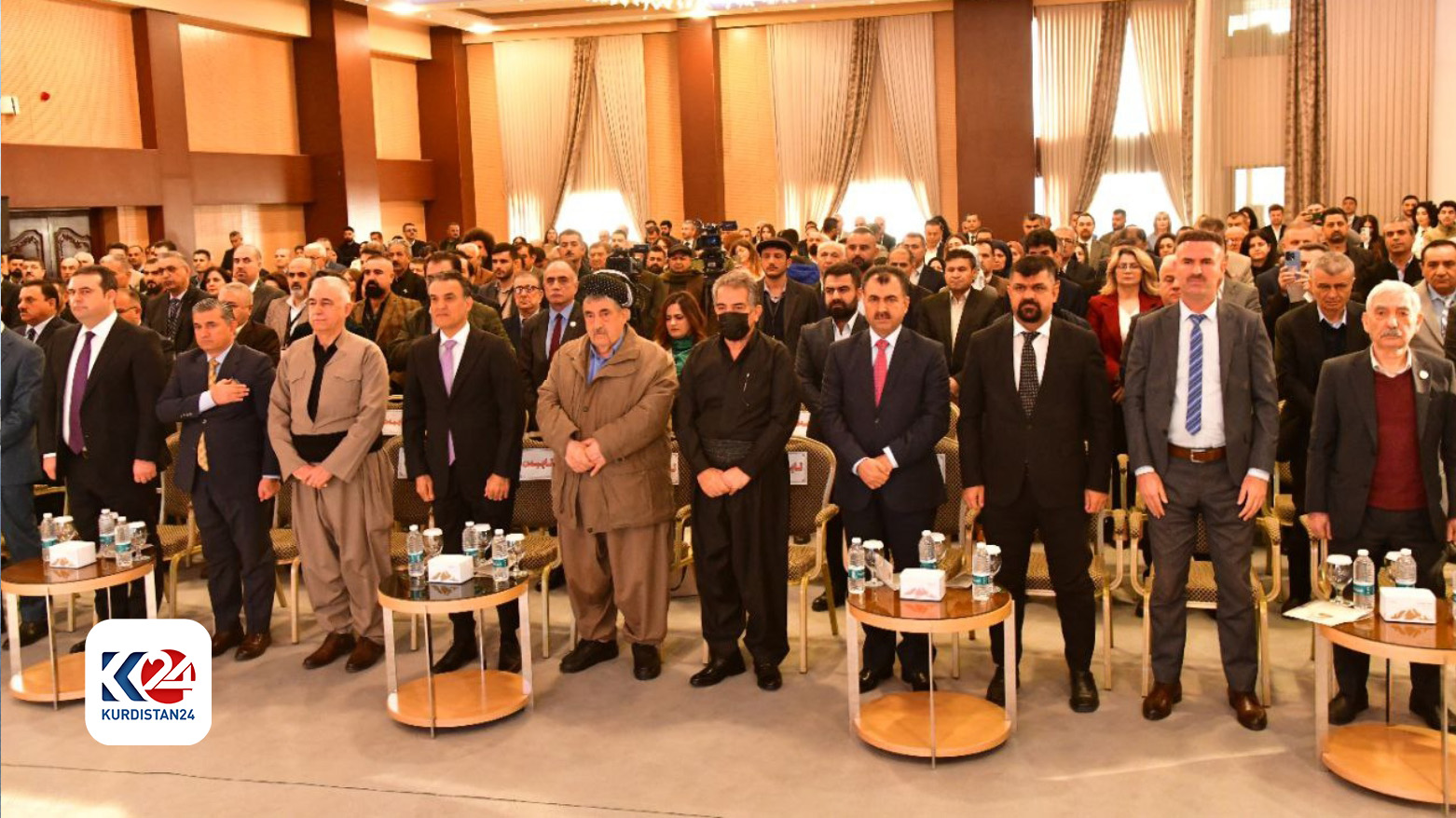Conference on Kurdish genocide held in Halabja

ERBIL (Kurdistan 24) – The conference "Genocide as Reflected in Literature and Art" began in Sulaimani on Monday under the supervision of Hamay Hama Saeed, the Kurdistan Regional Government’s (KRG) Minister of Culture and Youth.
18 researchers and academics presented their studies about the former Ba’athist regime’s Anfal Campaign and genocide of the Kurds at the conference, according to Kurdistan 24 reporter Dalia Kamal.
In addition, artists at the conference presented their paintings, depicting the brutal nature of the campaign. Musicians also performed traditional Kurdish folk music.
The artist Bakhtiar Halabjaee, told Kurdistan 24 "This conference is important for us as Kurds because we do not have a lot of documentation [of the crimes], especially during the Anfal campaign."
On July 31, 1983, the Ba’athist regime kidnapped 8,000 members of the Barzani tribe, including children, and relocated them to the deserts in the Iraqi south. There, members of the tribe were summarily executed and buried in mass graves.
Some remains of the deceased have been repatriated to the Kurdistan Region for reburial, but the whereabouts of most of the victims remain unknown.
Iraq’s High Criminal Court has deemed the Anfal campaign a genocide and a deliberate attempt to ethnically cleanse Iraq of its Kurdish population.
The campaign resulted in the deaths of an estimated 182,000 Kurds and the destruction of 5,000 villages between 1986 and 1989.
The main perpetrator behind the campaign was then Ba’athist Party Northern Bureau Chief Ali Hassan al-Majid, infamously known as “Chemical Ali.” In 2010, the Iraqi courts executed Majid after finding him guilty of a number of war crimes.



